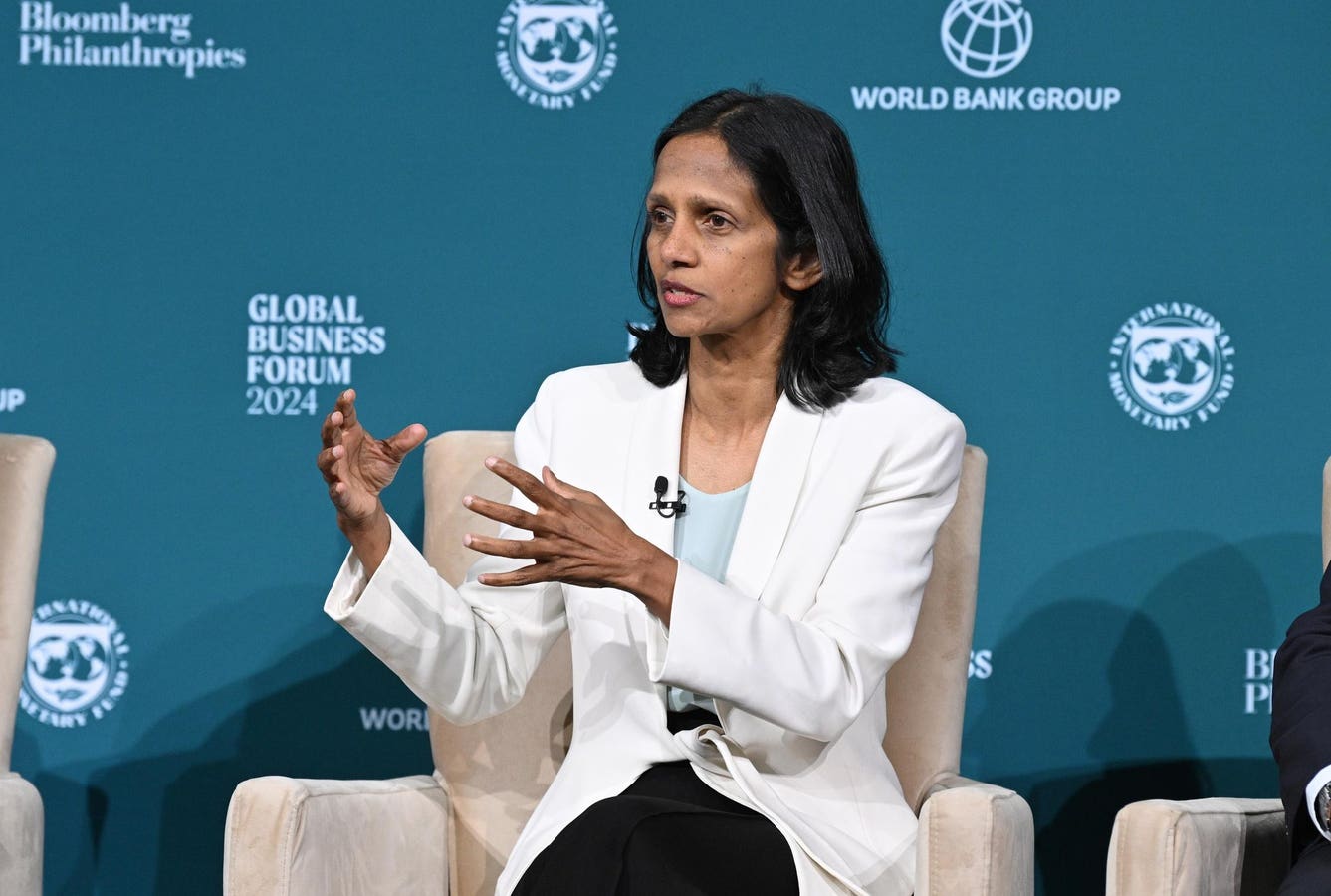NEW YORK, NEW YORK – SEPTEMBER 24: Shemara Wikramanayake, CEO, Macquarie Alum of Harvard Business … More
An MBA from Harvard Business School. The name alone conjures images of unparalleled prestige, a guaranteed golden ticket to a future of leadership, influence and success. But what if that golden ticket just got revoked?
Imagine this: You’ve poured your life savings, sacrificed years, and battled through gruelling admissions to secure a coveted spot at Harvard Business School. Now, you’re an international student, and suddenly, the very foundation of your dream – your ability to legally reside and study in the U.S. – is under fire. This isn’t a hypothetical scenario; it’s the harsh reality unfolding at the 389-year-old institution.
The Department of Homeland Security has revoked Harvard’s certification to host international students, at the time of publication it has been granted a temporary restraining order to continue enrolling international students while the case proceeds. For nearly 7,000 international students – over a quarter of Harvard’s entire enrolment – their future is a legal battleground, shrouded in the “incomprehensible” chaos that now defines our world.
For MBA candidates, especially, this is a wake-up call. Harvard Business School (HBS) relies on a staggering 50% international student body to fuel its renowned case learning methodology and foster the diverse perspectives crucial for future leaders. What happens when that wellspring of global talent is threatened?
Your MBA isn’t just a degree; it’s a massive investment. With tuition fees pushing $100,000 annually, you’re not just buying an education; you’re buying a promise of return on investment. But what if that promise is fracturing before your eyes?
Chaos is the new normal.
The landscape of higher education is no longer a stable, predictable terrain, where the profile is dominated by the pedigree of the United States market. The proliferation of strong offerings from international universities demonstrate the battleground, where universities are increasingly commercialized, and students are the consumers. The days of simply “transferring knowledge” are over. Today, it’s about teaching you how to think, how to evaluate, and how to critique in a world defined by volatility, uncertainty, complexity, and ambiguity (VUCA). Or, as the newer model suggests, a world that is Brittle, Anxious, Nonlinear, and Incomprehensible (BANI) developed by Jamais Cascio, a futurist and researcher affiliated with the Institute for the Future
Hong Kong University, already recognized as the “Most International University in the World” in 2023, isn’t waiting politely. They’re actively poaching Harvard’s potential candidates, offering a stark alternative to the unfolding drama in Cambridge, Massachusetts. To add insult to injury they are accessing candidates through the Harvard Alumni Club in Hong Kong.
Patti Brown, Associate Dean MBA Programs and Executive Degrees at Said Business School, University of Oxford and a veteran in international higher education, doesn’t mince words: “The United States has long been considered the safe bet for business education… But with shifting dynamics, it’s worth asking—is the U.S. still the best place to invest in their future hopes and ambitions?”
This isn’t just about where you get your degree; it’s about the very quality of your leadership development. In a BANI world, effective leaders don’t just respond to chaos; they cultivate organizational cultures that generate innovative solutions. This demands continuous learning, embracing diverse perspectives, and cultivating pluralistic thinking. As Brown emphasizes, “Growth and innovation in business education will come not only from standalone business schools, but also from universities that integrate business learning with the broader academic ecosystem.”
Futureproofing MBAs
The MBA of the future isn’t a one-size-fits-all generalist program. It’s about personalization, technology, and, crucially, employability. Generalist programs risk obsolescence, Kevin Ellis, Former Senior Partner EMEA PwC UK and keynote speaker at the 2025 AMBA Global Conference explains the seismic shifts around business education in the university sector; “For many years, PwC and similar firms relied on an apprenticeship model, where new MBA hires learned on the job under the guidance of senior staff. The organisational structure resembled a pyramid, with a large base of junior employees performing foundational tasks that provided essential learning opportunities.”
He continues to explain how AI is a major disrupter to this model; “Many of the routine and menial tasks once assigned to junior staff are now automated, leading to a more diamond-shaped structure. With fewer entry-level roles, organisations are hiring fewer graduates. Clients increasingly demand faster, more cost-effective solutions, leaving little room for the traditional on-the-job learning curve. In this new environment, MBA programs must adapt by integrating foundational professional skills into the academic experience. Core competencies such as strategic thinking, AI-assisted research, and analytical reasoning—skills traditionally developed through workplace experience—must now be built into the curriculum. AI is, in many ways, outsourcing cognitive effort; graduates must learn to complement it with critical thinking and human judgment.”
Business Schools need bold hairy strides rather than incremental steps to ensure their students have the opportunity to future-proof their careers. In today’s fight for talent attracting international students is not simply about money, its a strong indicator of the robustness of the global influence, and soft power of the country hosting business schools. Business schools remain the bastion of a country’s global influence and thought-leadership and bedrock for innovation and growth.
Brown states; “Our experience indicates that the majority of MBA candidates now enter the program with a solid grounding in the core disciplines traditionally covered in business education. At Oxford Saïd Business School, we draw on the cutting-edge research and interdisciplinary expertise of faculty from across the University of Oxford to curate a curriculum that responds to the rapidly evolving needs of our students and the global business landscape. As the motivations for pursuing an MBA have shifted—no longer centred solely on traditional career paths such as consulting—we are actively engaging with the question: how can we best equip our graduates to make a meaningful and lasting impact on the world.”
So, as you weigh your options for an MBA when considering business schools, ask yourself: Are you chasing a fading legacy, or are you investing in a future-proof education that equips you to thrive in a world where even the most venerable institutions are proving to be “brittle” and “incomprehensible”? The choice you make now could define your entire leadership career.


